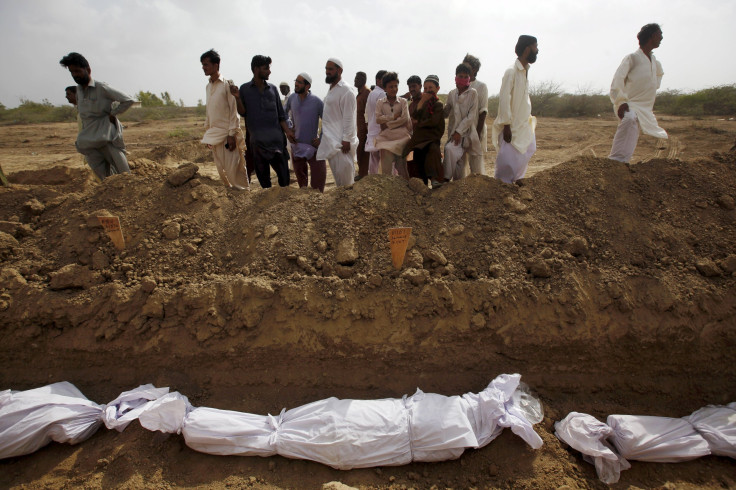Pakistan Heat Wave 2015: Death Toll Exceeds 1,200 As Karachi Struggles With Continued Extreme Weather During Ramadan

The death toll from a weeklong heat wave in Karachi, Pakistan, has risen to 1,233, officials told the Associated Press Saturday. Some 65,000 people flooded the city’s hospitals to be treated for heat stroke, and about 1,900 patients were still receiving medical care as the country began to cool off.
“The government quickly responded by making arrangements for the treatment of heat stroke patients, and the situation has improved now," said Nazar Mohammad Bozdar, operations director at the Provincial Disaster Management Authority.
The heat wave started in earnest June 20, with temperatures climbing to 113 degrees Fahrenheit -- the hottest it’s been since 2000, CNN reported. The extreme weather came at the same time as Ramadan, a holy month most Muslims observe by fasting. Karachi’s power grid also collapsed, leaving thousands without air conditioning in a city already facing power cuts and water shortages.
The elderly and the poor were most affected, and they went to hospitals in droves for heatstroke and dehydration. The dead soon overflowed the city’s morgues. “They are piling bodies one on top of the other,” hospital official Seemin Jamali told Al Jazeera this week. To Dawn, he added, “We are continuously receiving people in a critical condition or dead.”
Pakistan’s laws forbid people from drinking and eating in public in daylight during Ramadan. As the heat wave has continued -- and worsened -- some Muslim religious leaders departed from tradition and encouraged followers to break the fast for health reasons.
The heat started to subside Saturday, with sea breezes and clouds taking temperatures to the mid-90s. But authorities in the Meteorological Department told Samaa Karachi could see 104-degree temperatures Sunday. “It has never been this bad,” meteorologist Farooq Dar told Time magazine this week.
© Copyright IBTimes 2025. All rights reserved.






















